June 2021 SHAFR Prize Announcements
Betty Miller Unterberger Dissertation Prize
 The 2021 Betty M. Unterberger Dissertation Prize committee—Erez Manela (chair), V. Scott Kaufman, and Megan Threlkeld—is happy to announce that this year’s prize goes to Paul J. Welch Behringer. His 2020 dissertation was completed under the direction of Max Paul Friedman at American University. “U.S. and Japanese Intervention in the Russian Civil War: Violence and ‘Barbarism’ in the Far East” is a dissertation of substantial scope and originality. It embeds sophisticated interpretations in a narrative on an epic scale, which moves smoothly between high politics and ground-level perspectives on the dizzyingly shifting alliances and the gruesome violence that characterized the Russian Civil War and the foreign interventions in it. The dissertation also combines a sustained examination of the political and military developments with deft analysis of cultural images and social conditions, and it excels at highlighting and working through complexity and ambiguity – conflicting motivations, interests, and eyewitness accounts. Finally, the dissertation showcases an impressive command of several disparate historiographies and is based on archival research of extraordinary breadth and depth, including in Russian and Japanese-language documents.
The 2021 Betty M. Unterberger Dissertation Prize committee—Erez Manela (chair), V. Scott Kaufman, and Megan Threlkeld—is happy to announce that this year’s prize goes to Paul J. Welch Behringer. His 2020 dissertation was completed under the direction of Max Paul Friedman at American University. “U.S. and Japanese Intervention in the Russian Civil War: Violence and ‘Barbarism’ in the Far East” is a dissertation of substantial scope and originality. It embeds sophisticated interpretations in a narrative on an epic scale, which moves smoothly between high politics and ground-level perspectives on the dizzyingly shifting alliances and the gruesome violence that characterized the Russian Civil War and the foreign interventions in it. The dissertation also combines a sustained examination of the political and military developments with deft analysis of cultural images and social conditions, and it excels at highlighting and working through complexity and ambiguity – conflicting motivations, interests, and eyewitness accounts. Finally, the dissertation showcases an impressive command of several disparate historiographies and is based on archival research of extraordinary breadth and depth, including in Russian and Japanese-language documents.
 Honorable Mention: Benjamin W. Goossen, whose dissertation -- “The Year of the Earth (1957-1958): Cold War Science and the Making of Planetary Consciousness” – completed at Harvard University under Dr. Alison Frank Johnson. On its surface, the International Geophysical Year (IGY) of 1957-1958 offered an opportunity for science to break through Cold War differences in the name of acquiring data beneficial to the entire planet. Drawing on numerous archives in North and South America, Asia, Africa, Europe, and Oceania, Goossen demonstrates that in fact national self-interest underlaid the decision of more than five dozen countries to participate in this globalization of science. Superpower rivalry, economic development, territorial claims, and even the concept of white supremacy convinced countries as far afield as the United States, Soviet Union, Argentina, Chile, South Africa, India, Australia, and New Zealand to take part. Ultimately, the IGY, instead of encouraging a level playing field among developed and developing countries, advantaged the global North.
Honorable Mention: Benjamin W. Goossen, whose dissertation -- “The Year of the Earth (1957-1958): Cold War Science and the Making of Planetary Consciousness” – completed at Harvard University under Dr. Alison Frank Johnson. On its surface, the International Geophysical Year (IGY) of 1957-1958 offered an opportunity for science to break through Cold War differences in the name of acquiring data beneficial to the entire planet. Drawing on numerous archives in North and South America, Asia, Africa, Europe, and Oceania, Goossen demonstrates that in fact national self-interest underlaid the decision of more than five dozen countries to participate in this globalization of science. Superpower rivalry, economic development, territorial claims, and even the concept of white supremacy convinced countries as far afield as the United States, Soviet Union, Argentina, Chile, South Africa, India, Australia, and New Zealand to take part. Ultimately, the IGY, instead of encouraging a level playing field among developed and developing countries, advantaged the global North.
Stuart L. Bernath Scholarly Article Prize
 The SHAFR Bernath Article Award committee—Daniel Bessner (chair), Melani McAlister, and Alex Beasley—would like to congratulate Mira Kohl, the winner of this year's award. In her deeply researched and beautifully written piece, "Between Louisiana and Latin America: Oil Imperialism and Bolivia's 1937 Nationalization," which appeared in Diplomatic History, Kohl explores how "an oil-driven narrative of the Chaco War laid the groundwork for the [Western] hemisphere's first oil nationalization in Bolivia in 1937." In particular, Kohl reveals the profound interconnections between U.S. and Latin American politics, demonstrating how public allegations made by Senator Huey P. Long "provided fodder for a Latin American approach to mediating U.S. influence in the region and advancing Latin American goals of resource sovereignty," eventually leading to the aforementioned oil nationalization. In this way, Kohl highlights the centrality of transnational exchanges to hemispheric politics, bringing together Latin American history, U.S. history, and the history of racial capitalism in a profoundly engaging narrative.
The SHAFR Bernath Article Award committee—Daniel Bessner (chair), Melani McAlister, and Alex Beasley—would like to congratulate Mira Kohl, the winner of this year's award. In her deeply researched and beautifully written piece, "Between Louisiana and Latin America: Oil Imperialism and Bolivia's 1937 Nationalization," which appeared in Diplomatic History, Kohl explores how "an oil-driven narrative of the Chaco War laid the groundwork for the [Western] hemisphere's first oil nationalization in Bolivia in 1937." In particular, Kohl reveals the profound interconnections between U.S. and Latin American politics, demonstrating how public allegations made by Senator Huey P. Long "provided fodder for a Latin American approach to mediating U.S. influence in the region and advancing Latin American goals of resource sovereignty," eventually leading to the aforementioned oil nationalization. In this way, Kohl highlights the centrality of transnational exchanges to hemispheric politics, bringing together Latin American history, U.S. history, and the history of racial capitalism in a profoundly engaging narrative.
 In addition to Kohl's essay, the award committee would like to recognize two other articles with honorable mentions. The first, written by Rebecca Herman, published in the American Historical Review and titled "The Global Politics of Anti-Racism: A View from the Canal Zone," explores the complex history of anti-racist politics in U.S.-Panamanian relations. This capacious and richly researched essay links the history of global antiracist intellectual life and activism to the nuanced politics of labor and empire in Panama.
In addition to Kohl's essay, the award committee would like to recognize two other articles with honorable mentions. The first, written by Rebecca Herman, published in the American Historical Review and titled "The Global Politics of Anti-Racism: A View from the Canal Zone," explores the complex history of anti-racist politics in U.S.-Panamanian relations. This capacious and richly researched essay links the history of global antiracist intellectual life and activism to the nuanced politics of labor and empire in Panama.
 The second, written by Michael A. Hill, published in Diplomatic History and titled "Imperial Stepping Stone: Bridging Continental and Overseas Empire in Alaska," analyzes the important role Alaska played as a bridge between the continental and overseas eras of U.S. imperialism. Focusing on an under-analyzed part of U.S. empire, Hill's intelligent and thought-provoking essay is likely to become a standard in U.S. in the World courses.
The second, written by Michael A. Hill, published in Diplomatic History and titled "Imperial Stepping Stone: Bridging Continental and Overseas Empire in Alaska," analyzes the important role Alaska played as a bridge between the continental and overseas eras of U.S. imperialism. Focusing on an under-analyzed part of U.S. empire, Hill's intelligent and thought-provoking essay is likely to become a standard in U.S. in the World courses.
Together, the award winners and the many other excellent articles the committee received demonstrate the continuing vibrancy of U.S. diplomatic and international history in an increasingly difficult environment for humanities students and scholars.
Marilyn Blatt Young Dissertation Completion Fellowship
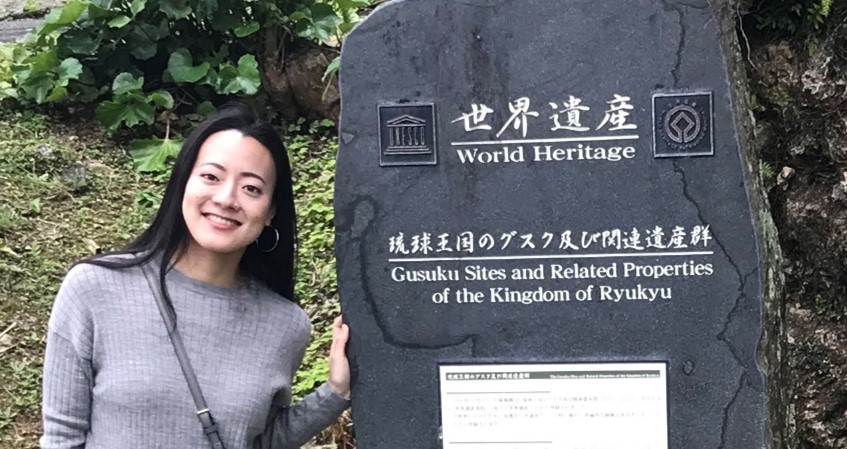 A graduate student at the University of Tennessee, Knoxville, Minami Nishioka is completing a dissertation titled “Civilizing Okinawa: Intimacies between the American and Japanese Empires, 1846-1939.” The project explores the expansion of U.S. empire into East Asia through the long history of American intervention in the island known today as Okinawa (formerly the Ryukyu Kingdom). Beginning with U.S. missionary collaboration with British imperialists in the mid-19th century, Nishioka reveals the critical role of American Protestants in multiple imperial structures taking shape over a century. Using Okinawa as a prism, she shows the long history of U.S.-Japanese intra-imperial collaboration, as American missionaries supported Japanese colonization of the island as a vanguard of Western civilization. Japanese missionaries similarly saw the American presence as advantageous to their own cultural and political objectives. Integrating religion into the methodologies of new imperial histories, Nishioka traces this imperial collaboration through the intimate relations that translate state power into the lived interactions of civilian society, and explores how these interactions in turn influenced Japanese and American empire in an uneven but mutual manner.
A graduate student at the University of Tennessee, Knoxville, Minami Nishioka is completing a dissertation titled “Civilizing Okinawa: Intimacies between the American and Japanese Empires, 1846-1939.” The project explores the expansion of U.S. empire into East Asia through the long history of American intervention in the island known today as Okinawa (formerly the Ryukyu Kingdom). Beginning with U.S. missionary collaboration with British imperialists in the mid-19th century, Nishioka reveals the critical role of American Protestants in multiple imperial structures taking shape over a century. Using Okinawa as a prism, she shows the long history of U.S.-Japanese intra-imperial collaboration, as American missionaries supported Japanese colonization of the island as a vanguard of Western civilization. Japanese missionaries similarly saw the American presence as advantageous to their own cultural and political objectives. Integrating religion into the methodologies of new imperial histories, Nishioka traces this imperial collaboration through the intimate relations that translate state power into the lived interactions of civilian society, and explores how these interactions in turn influenced Japanese and American empire in an uneven but mutual manner.
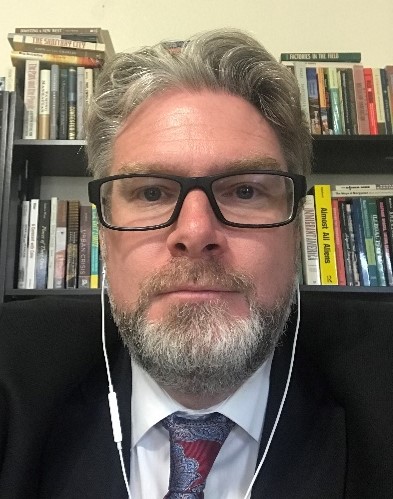 The committee—Vanessa Walker (chair), Ilaria Scaglia, and Tore Olsson—also awards honorable mention to Kevan Malone, a graduate student at the University of California, San Diego, studying with Nancy Kwak. Malone offers an innovative approach, merging diplomatic and urban histories in “Borderline Unsustainable: Urban Planning and Diplomacy at the Tijuana-San Diego Boundary.” Emphasizing the local dynamics of U.S.-Mexico relations, Malone shows how the built environment of the Tijuana-San Diego Metro area shaped relations between these neighboring countries, often driven by non-state actors and their cross-border economic and social interactions. In advancing his analysis, Malone brings together diverse sources from Mexico and the United States, including national governmental archives, local newspapers, collections from business groups, GIS mapping, and regional bureaucratic and municipal records. Malone makes a compelling case for the centrality of border cities to the history of U.S.-Mexico relations.
The committee—Vanessa Walker (chair), Ilaria Scaglia, and Tore Olsson—also awards honorable mention to Kevan Malone, a graduate student at the University of California, San Diego, studying with Nancy Kwak. Malone offers an innovative approach, merging diplomatic and urban histories in “Borderline Unsustainable: Urban Planning and Diplomacy at the Tijuana-San Diego Boundary.” Emphasizing the local dynamics of U.S.-Mexico relations, Malone shows how the built environment of the Tijuana-San Diego Metro area shaped relations between these neighboring countries, often driven by non-state actors and their cross-border economic and social interactions. In advancing his analysis, Malone brings together diverse sources from Mexico and the United States, including national governmental archives, local newspapers, collections from business groups, GIS mapping, and regional bureaucratic and municipal records. Malone makes a compelling case for the centrality of border cities to the history of U.S.-Mexico relations.
Stuart L. Bernath Book Prize
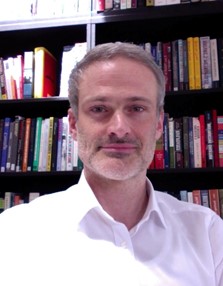 The specter of the 1930s is everywhere today. Stefan J. Link’s Forging Global Fordism: Nazi Germany, Soviet Russia, and the Contest over the Industrial Order reimagines that pivotal decade by telling a history about the engineers who flocked to Detroit to study the techniques of American automobile mass production after the United States’ ascendancy in the early decades of the twentieth century. Link’s research and methodological choices are superb. He roots his tale in the experiences of Soviet and Nazi specialists, showing how Fordism became a transnational language to comprehend world industrialization and why that language mobilized so many disparate populations for total war. In the process, his book reintroduces Fordism as an outgrowth of Midwestern populism, imbricated within an antiliberal outlook that appealed to the Soviet Union and Nazi Germany. Even as both regimes became antagonistic toward Franklin Roosevelt’s foreign policy, they imbibed what they saw as distinctly American assumptions about how to organize a society. This insight challenges the premise that global mass production stemmed from post-World War II liberal internationalism while raising new and difficult questions about the United States’ role in spreading illiberalism during the twentieth century. The contemporary relevance of Link’s story is obvious, and the committee—Ryan Irwin (chair), Andrew Rotter, and Gretchen Heefner—found Forging Global Fordism to be a masterful example of what U.S. foreign relations history has become.
The specter of the 1930s is everywhere today. Stefan J. Link’s Forging Global Fordism: Nazi Germany, Soviet Russia, and the Contest over the Industrial Order reimagines that pivotal decade by telling a history about the engineers who flocked to Detroit to study the techniques of American automobile mass production after the United States’ ascendancy in the early decades of the twentieth century. Link’s research and methodological choices are superb. He roots his tale in the experiences of Soviet and Nazi specialists, showing how Fordism became a transnational language to comprehend world industrialization and why that language mobilized so many disparate populations for total war. In the process, his book reintroduces Fordism as an outgrowth of Midwestern populism, imbricated within an antiliberal outlook that appealed to the Soviet Union and Nazi Germany. Even as both regimes became antagonistic toward Franklin Roosevelt’s foreign policy, they imbibed what they saw as distinctly American assumptions about how to organize a society. This insight challenges the premise that global mass production stemmed from post-World War II liberal internationalism while raising new and difficult questions about the United States’ role in spreading illiberalism during the twentieth century. The contemporary relevance of Link’s story is obvious, and the committee—Ryan Irwin (chair), Andrew Rotter, and Gretchen Heefner—found Forging Global Fordism to be a masterful example of what U.S. foreign relations history has become.
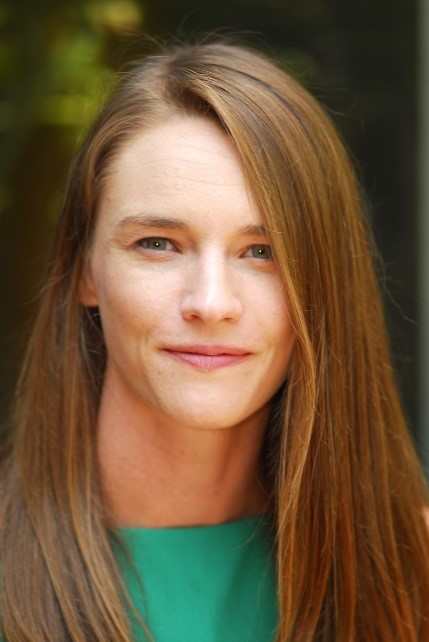 The Underground Railroad remains a potent symbol in the struggle against racism in the United States. Alice L. Baumgartner’s South to Freedom: Runaway Slaves to Mexico and the Road to the Civil War offers a totally original reinterpretation of that symbol, deftly weaving diplomatic, military, social, and cultural history to tell a story about the people who escaped slavery not by heading north but by crossing the southern border into Mexico. With a storyteller’s deft touch—and an astonishing collection of archival sources—she brings this world to life for her reader. The book asks new questions about the origins of the U.S. Civil War and situates its answers on a truly international canvas while evincing a nuanced appreciation of sectional politics (in the United States and Mexico) during the mid-nineteenth century. By revisiting an era when slaves fled south for freedom, Baumgartner invites us to pause and consider our own assumptions about the people seeking opportunity north of the U.S.-Mexico border today. Deeply researched and movingly written, South to Freedom is this year’s honorable mention.
The Underground Railroad remains a potent symbol in the struggle against racism in the United States. Alice L. Baumgartner’s South to Freedom: Runaway Slaves to Mexico and the Road to the Civil War offers a totally original reinterpretation of that symbol, deftly weaving diplomatic, military, social, and cultural history to tell a story about the people who escaped slavery not by heading north but by crossing the southern border into Mexico. With a storyteller’s deft touch—and an astonishing collection of archival sources—she brings this world to life for her reader. The book asks new questions about the origins of the U.S. Civil War and situates its answers on a truly international canvas while evincing a nuanced appreciation of sectional politics (in the United States and Mexico) during the mid-nineteenth century. By revisiting an era when slaves fled south for freedom, Baumgartner invites us to pause and consider our own assumptions about the people seeking opportunity north of the U.S.-Mexico border today. Deeply researched and movingly written, South to Freedom is this year’s honorable mention.
Robert H. Ferrell Book Prize
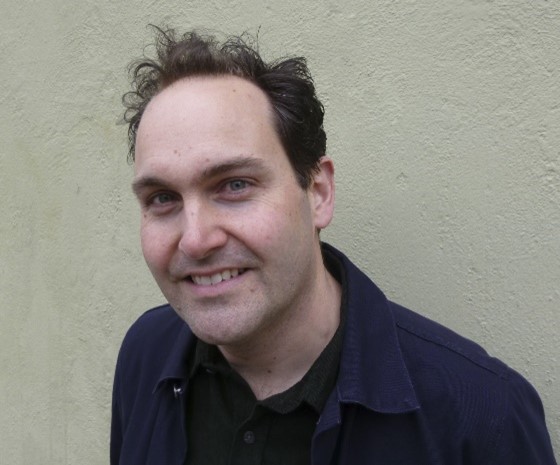 This year’s Robert H. Ferrell Prize goes to Samuel Zipp for his book, The Idealist: Wendell Wilkie’s Wartime Quest to Build One World published by Belknap Press. Members of the committee found The Idealist enormously inventive, using Wilkie’s 1942 trip to full effect as a genuinely insightful window into the shape of U.S. internationalism in a moment of sweeping change. The prize committee—Paul Thomas Chamberlin (chair), Jussi Hanhimaki, Sheyda Jahanbani, and Sarah Snyder—found that Zipp’s book brings out a story that has sometimes been lost amid all the attention to figures such as Franklin Roosevelt during this period. That it also captured the brief moment between the beginning of decolonization and the arrival of the Cold War. A history of ideas, a social history of diplomacy, and an international history, The Idealist was richly researched and written with verve and artfulness.
This year’s Robert H. Ferrell Prize goes to Samuel Zipp for his book, The Idealist: Wendell Wilkie’s Wartime Quest to Build One World published by Belknap Press. Members of the committee found The Idealist enormously inventive, using Wilkie’s 1942 trip to full effect as a genuinely insightful window into the shape of U.S. internationalism in a moment of sweeping change. The prize committee—Paul Thomas Chamberlin (chair), Jussi Hanhimaki, Sheyda Jahanbani, and Sarah Snyder—found that Zipp’s book brings out a story that has sometimes been lost amid all the attention to figures such as Franklin Roosevelt during this period. That it also captured the brief moment between the beginning of decolonization and the arrival of the Cold War. A history of ideas, a social history of diplomacy, and an international history, The Idealist was richly researched and written with verve and artfulness.
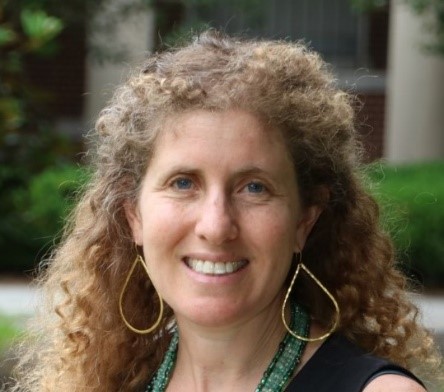 The committee also awards honorable mention to Jana Lipman’s In Camps: Vietnamese Refugees, Asylum Seekers, and Repatriates published by University of California Press. The committee commends Lipman’s study for its timely and important contribution to our collective understanding what refugee status means. Drawing on rich archival material and oral histories, In Camps approaches the question of refugees from many angles: migration, humanitarianism and human rights, NGOs, and empire.
The committee also awards honorable mention to Jana Lipman’s In Camps: Vietnamese Refugees, Asylum Seekers, and Repatriates published by University of California Press. The committee commends Lipman’s study for its timely and important contribution to our collective understanding what refugee status means. Drawing on rich archival material and oral histories, In Camps approaches the question of refugees from many angles: migration, humanitarianism and human rights, NGOs, and empire.
The Michael H. Hunt Prize for International History
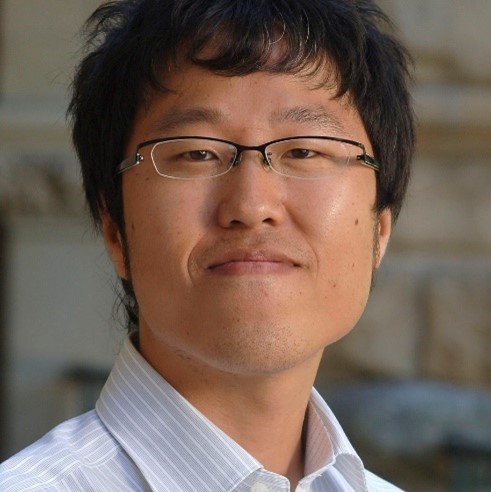 For 2021, the Michael H. Hunt Prize in International History is awarded to Toshihiro Higuchi. The committee—Jessica Gienow-Hecht (chair), Nathan Citino, and Max Paul Friedman—found his work best reflects the methodological approach of the historian whose name marks the prize: multi-archival and multi-lingual resources as well as an astute interpretation of both sources and context that significantly expand our knowledge of international history.
For 2021, the Michael H. Hunt Prize in International History is awarded to Toshihiro Higuchi. The committee—Jessica Gienow-Hecht (chair), Nathan Citino, and Max Paul Friedman—found his work best reflects the methodological approach of the historian whose name marks the prize: multi-archival and multi-lingual resources as well as an astute interpretation of both sources and context that significantly expand our knowledge of international history.
Higuchi’s Political Fallout: Nuclear Weapons Testing and the Making of A Global Environmental Crisis retraces the domestic and international politics around the control of radioactive fallout in a variety of countries including Japan, Great Britain, and the United States. Introducing the concept of the "Nuclear Anthropocene," Higuchi shows how nuclear powers (Great Britain, United States, and Soviet Union) consistently downplayed fallout risk and deceived their populations in order to continue and expand nuclear testing for military purposes. As scientists and private citizens grew alarmed (and in Japan even organized to retrace and then protest the consequences of testing), the test ban and its attendant treaties can be understood not only as a consequence of disarmament and arms control but also as a result of early anti-nuclear testing movements. Political Fallout’s principal strengths consist, first, in its in-depth research citing Russian, Japanese, and English primary sources. Second, Higuchi’s take and presentation on a complex issue – notably the science around nuclear fallout – strikes the committee as both comprehensible and fascinating. Third and most importantly, Political Fallout constitutes a timely, bold, and innovative reinterpretation of a seemingly familiar phenomenon at a moment in time when western societies once again engage in debates over the fallout of nuclear power.
 The committee decided to extend an honorary mention to Stefan J. Link’s Forging Global Fordism: Nazi Germany, Soviet Russia, and the Contest over the Industrial Order. Link examines the economic and political impact of Henry Ford’s industrial vision as a transnational phenomenon resonating with both liberal and illiberal regimes. His research focus on sources located in Germany, Russia, and the United States enables the author to analyze these three countries not merely as ideological competitors but as different varieties of modern mass society prone to populism. Global Fordism’s strength consists, first of all, in its reinterpretation of a familiar phenomenon: Fordism was inherently modern and anti-elitist politically, which accounts for its attraction on the global level in the 1920s and 1930s. Second, it retraces the acceleration of Fordism’s attractiveness during the economic depression and the beginning of the Second World War. Third, its central argument focusing on the transition from admiration to antagonism enables historians to gain a more nuanced understanding of the interplay of technology, modernity, and populism at a time when people the world over question and challenge the central tenets of liberalism.
The committee decided to extend an honorary mention to Stefan J. Link’s Forging Global Fordism: Nazi Germany, Soviet Russia, and the Contest over the Industrial Order. Link examines the economic and political impact of Henry Ford’s industrial vision as a transnational phenomenon resonating with both liberal and illiberal regimes. His research focus on sources located in Germany, Russia, and the United States enables the author to analyze these three countries not merely as ideological competitors but as different varieties of modern mass society prone to populism. Global Fordism’s strength consists, first of all, in its reinterpretation of a familiar phenomenon: Fordism was inherently modern and anti-elitist politically, which accounts for its attraction on the global level in the 1920s and 1930s. Second, it retraces the acceleration of Fordism’s attractiveness during the economic depression and the beginning of the Second World War. Third, its central argument focusing on the transition from admiration to antagonism enables historians to gain a more nuanced understanding of the interplay of technology, modernity, and populism at a time when people the world over question and challenge the central tenets of liberalism.
The Hunt Prize committee extends its profound thanks to all those who shared their publications with the committee members and to those who contributed financially and in countless other ways to the establishment of the prize, especially Michael Hunt’s widow, Paula Hunt, as well as his former doctoral students, Alan McPherson and Chris Jespersen, who organized the endowment effort for this prize.
Anna K. Nelson Prize for Archival Excellence
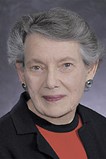 No member of SHAFR was better known for archival research and promoting archival access for other SHAFR members than Anna K. Nelson. It could not be more appropriate, therefore, to award the inaugural Anna K. Nelson Prize for Archival Excellence to an archivist who is equally identified with promoting and facilitating archival research and access. For that reason, SHAFR’s Historical Documentation Committee—Richard Immerman (chair), Doug Selvage, Kelly McFarland, Jim Brennan, and Hannah Gurman—voted unanimously and enthusiastically to bestow the 2021 Nelson Prize on David Langbart for his decades of service to the National Archives and Records Administration (NARA).
No member of SHAFR was better known for archival research and promoting archival access for other SHAFR members than Anna K. Nelson. It could not be more appropriate, therefore, to award the inaugural Anna K. Nelson Prize for Archival Excellence to an archivist who is equally identified with promoting and facilitating archival research and access. For that reason, SHAFR’s Historical Documentation Committee—Richard Immerman (chair), Doug Selvage, Kelly McFarland, Jim Brennan, and Hannah Gurman—voted unanimously and enthusiastically to bestow the 2021 Nelson Prize on David Langbart for his decades of service to the National Archives and Records Administration (NARA).
David requires no introduction for SHAFR members. He has offered us, and our students, the expert advice that has assured that our visits to NARA were both efficient and productive. We have also benefited from reading the informative, insightful, and fascinating blogs that he regularly distributes. Still, we offer this snapshot of his career to explain fully why David is so richly deserving of this award.
 A student of Walter LaFeber at Cornell and then Wayne Cole at the University of Maryland, David began working at NARA as an intern in the 1970s and has remained there in various capacities over the subsequent four decades. He held his first full-time position in what was then known as the Diplomatic Branch. There, he was mentored by Sally Marks and other legendary archivists renowned for their subject matter expertise, which they shared generously and eagerly with legions of SHAFR members. They passed on to David the same spirit and commitment along with their expertise. Few among us have not profited from a conversation with David during a visit to the research room at Archives II, at a SHAFR conference, from one of his detailed responses to an email inquiry, or from his analysis of a document featured in his blog.
A student of Walter LaFeber at Cornell and then Wayne Cole at the University of Maryland, David began working at NARA as an intern in the 1970s and has remained there in various capacities over the subsequent four decades. He held his first full-time position in what was then known as the Diplomatic Branch. There, he was mentored by Sally Marks and other legendary archivists renowned for their subject matter expertise, which they shared generously and eagerly with legions of SHAFR members. They passed on to David the same spirit and commitment along with their expertise. Few among us have not profited from a conversation with David during a visit to the research room at Archives II, at a SHAFR conference, from one of his detailed responses to an email inquiry, or from his analysis of a document featured in his blog.
But David has served us in countless ways that may have escaped the notice of SHAFR’s membership. At NARA David spent as much time in appraisal as he did in reference. During these decades, he received recognition from a variety of agencies, including the CIA and NSA, for his service to their records. He was even deployed to Berlin to appraise and develop disposition schedules for Cold-War-era records from the U.S. Mission there. Just as notably, the Society for the History of the Federal Government awarded David with its Thomas Jefferson Prize for his guide to the FBI’s records and classification system, “Unlocking the Files of the FBI.”
Through David’s decades of experience in both Research and Agency (Appraisal) Services, David developed unparalleled expertise in the complex division of responsibility between NARA and the agencies—the State Department above all—in terms of reviewing, processing, and preserving records and thus ensuring access to them for scholars as well as the general public. For this reason, David has been a sui generis contributor to the State Department’s Office of the Historian and its Historical Advisory Committee (HAC), which are so vital to the publication of the Foreign Relations of the United States series and other resources central to our teaching and research. The minutes of the HAC meetings abound with references to David’s briefings and his interventions in debates. In this way, he has not only raised awareness of contentious archival issues, but he also contributed to their resolution.
One letter supporting David’s nomination concluded, “For some four decades he has served as an exemplar of NARA’s ideal archivist, and throughout those years SHAFR . . . has been the primary beneficiary.” Another read, “David’s accomplishments serve as a testament to the value of knowledgeable subject area experts who understand the significance of our research and who work ceaselessly to advance it.” For historians of U.S. foreign relations, archivists are unsung heroes. By honoring David Langbart today with the inaugural Anna K. Nelson Prize for Archival Excellence, SHAFR takes a small—yet significant and long overdue—step toward correcting this oversight.

